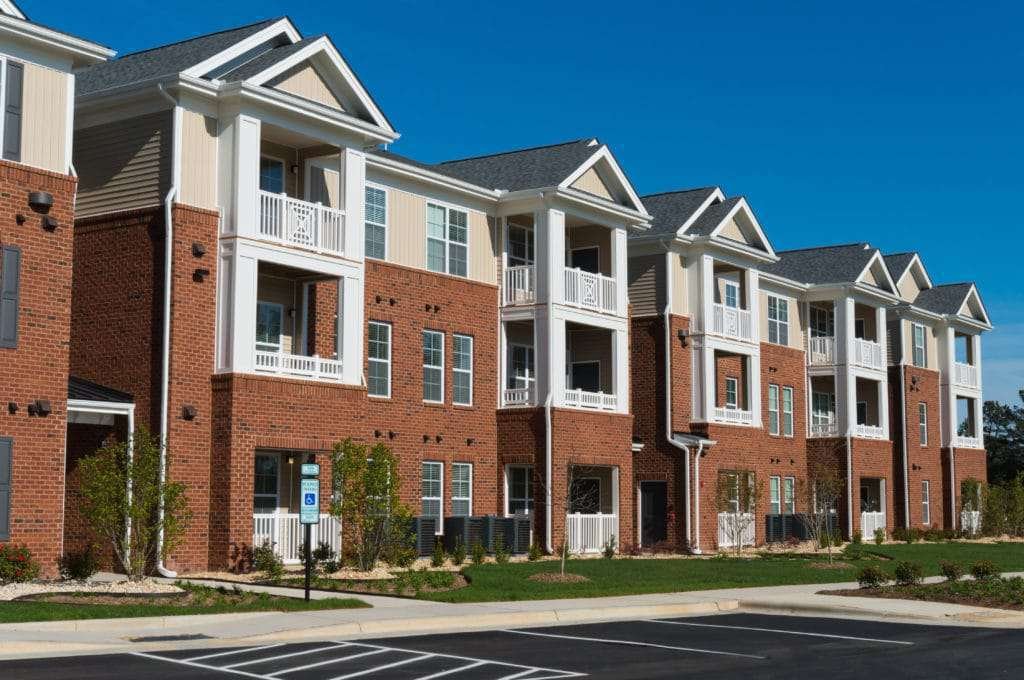When it comes to maintaining your property’s value, ensuring tenant safety, and staying compliant with HUD’s guidelines, the NSPIRE (National Standards for the Physical Inspection of Real Estate) pre-inspection process is more important than ever. With increasing pressure from the Department of Housing and Urban Development (HUD) for properties to meet high standards, property owners and managers need to be proactive. This comprehensive guide will walk you through everything you need to know about NSPIRE pre-inspections, why they are essential, and how they can help you avoid costly issues down the road. Let’s dive into how NSPIRE pre-inspections can set you up for success.

What is NSPIRE? An Overview of HUD’s Inspection Protocol
NSPIRE is HUD’s updated inspection protocol designed to evaluate the physical condition of real estate in a more comprehensive and accurate way than previous standards. The goal of NSPIRE is to prioritize resident health, safety, and building functionality over mere appearance. Introduced to replace the outdated REAC inspection system, NSPIRE is a crucial part of HUD’s efforts to improve housing quality across the U.S.
Unlike the old system, which primarily focused on cosmetic issues, NSPIRE now includes more detailed criteria, ensuring that all facets of the property are inspected and that the living conditions are up to par. From structural elements like roofing and foundations to mechanical systems such as HVAC and plumbing, NSPIRE covers every aspect that affects the well-being of tenants. To ensure you’re meeting these updated standards, performing a NSPIRE pre-inspection is the most effective way to stay ahead.
The specifics of the NSPIRE inspection process and its scoring system can be found in this Federal Register document, and more information about HUD’s implementation of the NSPIRE program is available in this HUD resource.
The Importance of NSPIRE Pre-Inspections
In today’s environment, passing a HUD inspection is no longer just about aesthetics—it’s about ensuring that tenants have safe and healthy living conditions. Conducting a NSPIRE pre-inspection provides property owners with the opportunity to identify potential issues before they become inspection failures. By addressing deficiencies early, you ensure that your property is in compliance with HUD standards, avoiding penalties, and reducing the likelihood of failing the official NSPIRE inspection.
Proactive Identification of Compliance Issues
NSPIRE pre-inspections are the first step in proactively identifying compliance issues. These inspections allow property managers and owners to get ahead of potential problems that could lead to costly repairs and failed inspections. For example, issues like leaks, malfunctioning HVAC systems, and electrical hazards can be addressed before HUD inspectors arrive, saving time and money.
Fixing issues ahead of time also prevents delays in the official inspection process, allowing you to avoid fines or loss of funding due to non-compliance. The earlier you catch and fix these problems, the smoother the inspection process will go, and the more likely you are to pass on the first try.
Enhancing Resident Satisfaction and Safety
Beyond compliance, a key benefit of conducting a NSPIRE pre-inspection is the positive impact it has on your tenants. When you address maintenance issues and safety hazards early, you create a safer and more comfortable living environment for your residents. Whether it’s ensuring fire alarms are functional or repairing structural issues, your pre-inspection ensures that your property maintains high standards of living.
By keeping tenants safe and satisfied, you also improve retention and reputation. Happy tenants are more likely to stay longer and recommend your property to others. Ultimately, this reduces turnover costs and boosts tenant loyalty.

Key Focus Areas During an NSPIRE Pre-Inspection
NSPIRE inspections are more detailed and comprehensive than previous assessments, focusing on key areas that have the greatest impact on the safety and well-being of residents. During a NSPIRE pre-inspection, there are several critical components that will be evaluated to ensure your property is compliant.
Structural Integrity and Safety
The structural integrity of your building is paramount to the safety of your tenants. This includes everything from the foundation to the roof. During a pre-inspection, your property will be thoroughly examined for any potential structural weaknesses that could pose safety risks. Cracks in walls, water damage, or unstable foundations can lead to significant problems if not addressed. A pre-inspection allows you to catch these issues early and make the necessary repairs before an official inspection.
Systems and Utilities Check
Ensuring that your property’s mechanical systems are functioning properly is another crucial element of the NSPIRE inspection. These systems include plumbing, electrical, and HVAC systems—components that directly affect both the comfort and safety of residents. A pre-inspection will ensure that these systems are in good working order, preventing costly failures down the line.
Issues like faulty wiring, plumbing leaks, or an inefficient heating system can lead to serious safety hazards and inspection failures. A thorough pre-inspection ensures these systems are up to code and operational before the official inspection, allowing you to address any issues in advance.
Compliance with Health and Safety Standards
Health and safety standards play a central role in the NSPIRE inspection process. This includes ensuring that the property is free of hazards like mold, lead paint, or vermin. Your pre-inspection will identify areas where the property may be non-compliant with health regulations, allowing you to take corrective actions before the official inspection.
Ensuring your property meets these standards is not just about passing inspections—it’s about creating a safe and healthy environment for your residents. By proactively addressing these issues, you not only increase the likelihood of a successful inspection but also protect your tenants’ well-being.
Common Deficiencies Identified in NSPIRE Inspections
Failing a NSPIRE inspection can be costly—not just in terms of repairs but also in terms of lost revenue, legal consequences, and potential tenant dissatisfaction. Identifying common deficiencies ahead of time through a pre-inspection is critical for property owners. Here are some of the most frequent issues identified during NSPIRE inspections:
Frequent Health and Safety Violations
Health and safety violations are some of the most commonly cited issues during NSPIRE inspections. Common violations include issues with smoke detectors, carbon monoxide detectors, fire safety systems, and the presence of health hazards such as mold or pest infestations. These violations are often easily overlooked in routine maintenance checks, but NSPIRE focuses heavily on them, so it’s important to ensure they’re addressed early on.
Ensuring that smoke detectors are functional, fire exits are clear, and there are no hazardous materials present in the building can make a huge difference in your inspection results.
Maintenance and Upkeep Challenges
Maintenance problems, even seemingly minor ones, can quickly snowball and lead to inspection failures. Cracked windows, broken handrails, peeling paint, or plumbing leaks can all contribute to an unfavorable inspection. NSPIRE’s focus on overall property maintenance means that even minor issues need to be addressed in advance.
By conducting a thorough pre-inspection, you can identify these maintenance issues early and ensure that your property remains in top condition for both inspections and tenant satisfaction.

How NSPIRE Experts Can Ensure Your Property’s Compliance
When it comes to NSPIRE compliance, you don’t have to go it alone. NSPIRE Experts is here to help you navigate the pre-inspection process and ensure that your property is fully prepared for the official inspection. With our expertise and comprehensive services, we’ll help you identify deficiencies, perform necessary repairs, and ensure that your property meets all HUD requirements.
Our team of experts understands the complexities of NSPIRE inspections and is ready to provide you with a detailed pre-inspection to ensure that your property passes with flying colors. From comprehensive assessments to repairs and inspection guidance, we are your trusted partner in achieving compliance.
For more information about how we can assist you, visit our NSPIRE pre-inspection services page and get started today.
Schedule a FREE NSPIRE Consultation with Us Today
Are you ready to take the next step in ensuring your property’s compliance? Schedule a free NSPIRE consultation with our team to get personalized advice and a custom quote for your pre-inspection. Our experts will provide you with the insights you need to stay ahead of the game and avoid costly inspection failures. Don’t wait—book your free consultation now here.
Conclusion: Achieving Excellence Through NSPIRE Pre-Inspections
NSPIRE pre-inspections are an essential tool for property owners and managers who want to maintain compliance, avoid penalties, and provide a safe, healthy environment for tenants. By proactively identifying and addressing deficiencies before the official inspection, you ensure a smoother process and a higher likelihood of passing on the first try. With NSPIRE Experts by your side, you can be confident that your property will meet all necessary standards and remain in top condition.
Start the process today by scheduling your NSPIRE pre-inspection consultation. With our expert guidance and support, we’ll help you navigate the complexities of the NSPIRE inspection process and achieve compliance.
For additional services like apartment turnovers or to explore our full range of specialized services, check out our offerings and let us help you keep your property in optimal condition.
